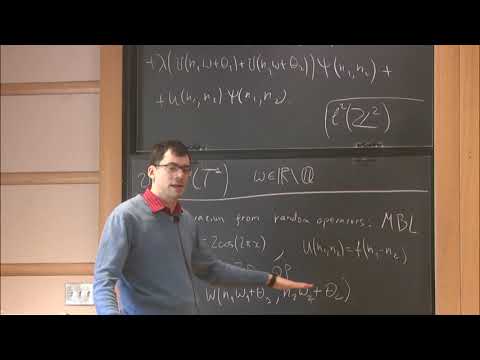Localization and delocalization for interacting 1D quasiperiodic particles.
Presenter
March 15, 2019
Abstract
We consider a system of two interacting one-dimensional quasiperiodic particles as an operator on $\ell^2(\mathbb Z^2)$. The fact that particle frequencies are identical, implies a new effect compared to generic 2D potentials: the presence of large coupling localization depends on symmetries of the single-particle potential. If the potential has no cosine-type symmetries, then we are able to show localization at large disorder and all energies, even if the interaction is not small (with some assumptions on its complexity, the interaction can be stronger than the disorder). If symmetries are present, we can show localization away from finitely many energies, thus removing a fraction of spectrum from consideration. We also demonstrate that, in the symmetric case, delocalization can indeed happen if the interaction is strong, at the energies away from the bulk spectrum. The result is based on joint works with Jean Bourgain and Svetlana Jitomirskaya.
